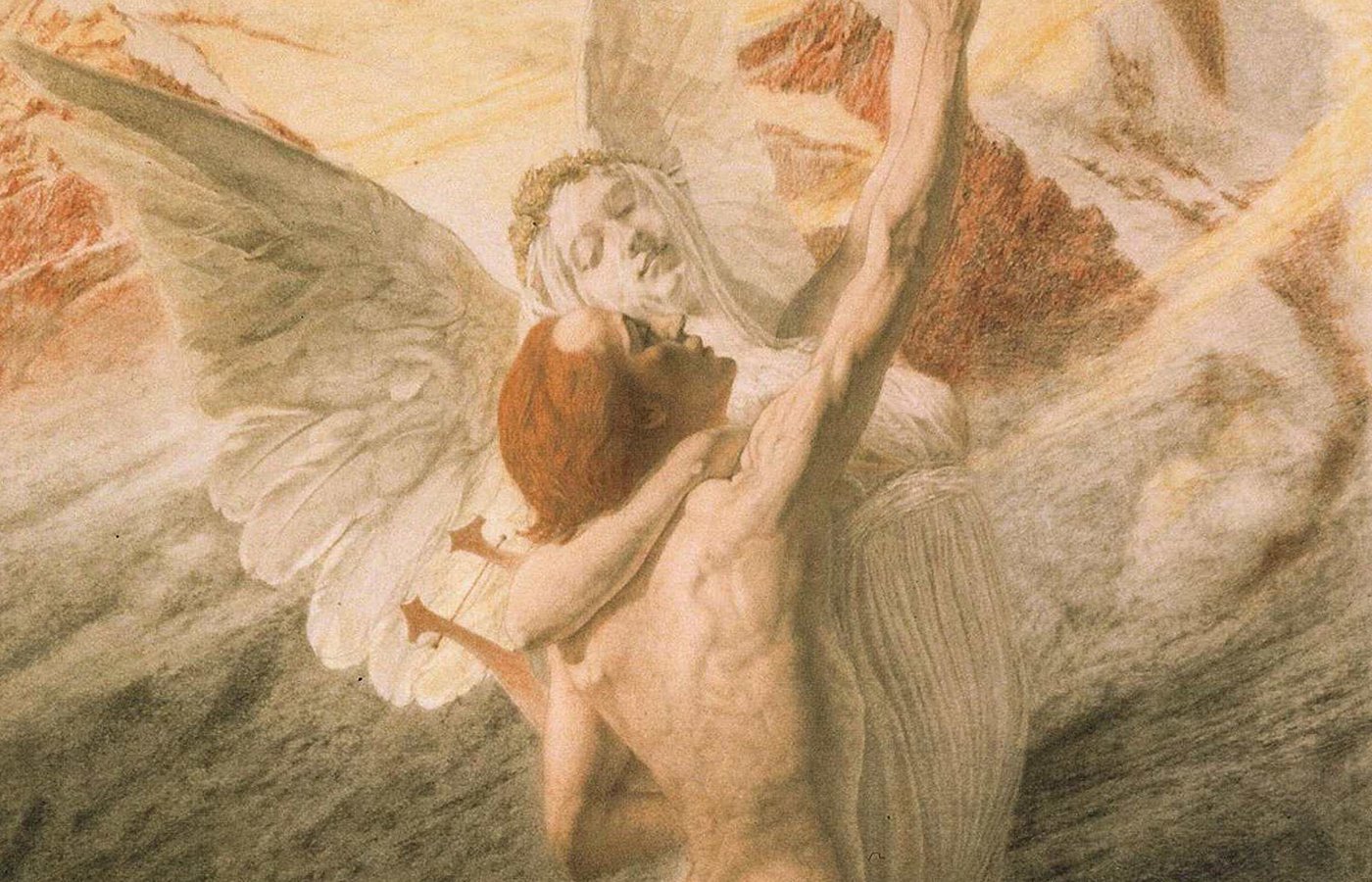The Accursed Poet
The infamous French poet, Charles Baudelaire, was listed among the “poètes maudits”—the accursed poets—of nineteenth century France. He only published one collection of poems in his lifetime, Les Fleurs du mal, which was met by outrage and led to a scandalous lawsuit because of some poems’ graphic content. The problem with Baudelaire, however, was not so much that he was writing about sex, drunkenness, and violence; it was that he wrote about ugly things—at times horrible things—while using the classical perfection of the French verse, and merged the longing for a lost ideal with the modernity of Haussmanian Paris. As such, Baudelaire's art is not about gruesome indecency, but about acknowledging horror as a non-negotiable part both of the human condition and of the creation of the self. Baudelaire coined the phrase, “Spleen et idéal”—this oxymoron is, in fact, the title of a section in Les Fleurs du mal—and the opposition between the horror and the ecstasy of life is one that runs throughout his oeuvre. Indeed, it serves as a kind of poetic principle, informing his description of contemporary, realistic scenes.
This lecture will focus on two sonnets, “À une passante” and “Recueillement,” both of which feature contemporary settings. The first is about a missed encounter with a fleeting figure; the second is a lyric speaker’s crepuscular meditation on his own pain while the sun sets behind the bridges of the Seine. These two poems will offer emblematic examples of Baudelaire’s poetic technique and his philosophical heritage, and will help to explain why, although he died in utter misery, he was one of the most influential artistic figures of the century that followed.
This lecture and discussion were recorded with a live online audience on June 23rd, 2022.
The poems and their translations:
"À une passante"
"Recueillement"
Authors, Ideas, and Works Mentioned in this Episode
Charles Baudelaire
Eugène Delacroix, “La Liberté guidant le peuple”
Chateaubriand
Benjamin Constant
Alphonse de Lamartine
Victor Hugo, “Les Miserables”
George Sand
Jean-Jacques Rousseau
Voltaire
Victor Hugo, “Les Chansons des rues et des bois”
Édouard Manet
Blaise Pascal
Joseph de Maistre
Edgar Allan Poe
Platonism
Neo-Platonism
Edgar Allan Poe, “The Imp of the Perverse”
Charles Baudelaire, “L’art romantique”
Charles Baudelaire, “Les Fleurs du mal”
Carlos Schwabe, “Spleen et idéal”
Oscar Wilde
Charles Baudelaire, “À une passante”
Petrus Borel, “Champavert”
Charles Baudelaire, “Recueillement”
Charles Baudelaire, “Le Spleen de Paris”
Michael Edwards, “Bible et poésie”
Vladimir Jankélévitch, “La Mort”
Carlos Schwabe, “Les Noces du poète et de la Muse ou L’Ideal”
Gustav Moreau
Lord Byron
Links of Possible Interest
Dr Marie Kawthar Daouda's biography
https://www.ralston.ac/people/marie-kawthar-daouda
Dr Stephen Blackwood
https://www.stephenjblackwood.com
Timeline
0:00 – Introduction
4:15 – Dr Daouda's lecture: background and context of Baudelaire’s time
11:03 – Baudelaire’s influences and relationship with Victor Hugo
19:15 – Horror and ecstasy: Baudelaire’s split view of life
24:20 – Baudelaire’s 'À une passante'
40:24 – Baudelaire’s 'Recueillement'
56:45 – Baudelaire’s reflections on time, nature, and the day
1:01:40 – The presence of God and the divine in poetry
1:04:41 – Conclusion: influence and legacy of Baudelaire
*Discussion*
1:09:03 – The question of time and eternity in Baudelaire’s 'À une passante'
1:14:54 – The beauty of language in 'À une passante'
1:17:57 – What drew Daouda to Baudelaire?
1:22:03 – Baudelaire’s personal struggles in childhood and adulthood
1:26:50 – Baudelaire’s artistic and theological influences
1:30:56 – Original sin: Baudelaire’s critical opinions of art and God
1:37:18 – The redeeming qualities of language in tragedy and loss
1:42:55 – Why were Baudelaire’s poems censored?
1:45:28 – Dodging the trap of procrastination; poetry reading as modern rebellion



